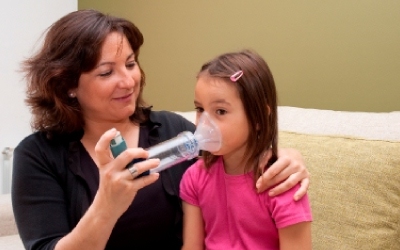How to Reduce Your Child’s Asthma and Allergy Symptoms
It seems as though spring is finally on its way. However, whilst most of us may breathe a sigh of relief as we pack away the winter warmers and flu relief medications, if you have a child with asthma or allergies, spring presents a whole new set of wellness problems.
The symptoms of asthma can occur at any age, although most children tend to experience them by the age of five. The triggers that set off your child’s asthma will be unique to their condition, which makes it hard to determine what those triggers are, and how to guard your child’s wellbeing against them. Larry Blumenthal, CFO at Goodnight Paediatrics, explains, ‘Knowing what triggers your child’s asthma is extremely important. For example, if pollen is a problem, then it is important for parents to keep the windows closed to control pollen levels and adjust outdoor activity accordingly.’
The symptoms of asthma and spring allergies, often caused by high pollen counts this time of year, are similar. Both can include coughing (especially at night), whilst allergies can also incur a runny nose, watery eyes, sneezing, coughing and itchy eyes and nose. Airborne allergies can also trigger asthma, with added symptoms such as wheezing, shortness of breath and chest tightness, pain or pressure.
So, as a parent, what can you do to minimise these nasty symptoms? If you can identify the triggers of your child’s asthma or allergies, that’s half the battle and you can achieve this more easily if you work with your child’s doctor. You should also consult your child’s physician before you begin to regularly give your child allergy medications. Zyrtec, for example, is approved for children over the age of six months and can help keep child allergy symptoms under control, but it’s best to consult a doctor as Zyrtec requires regular, daily use.
However, if you don’t like the idea of allergy medications, or your child’s doctor advises against it, there are other things you can do to minimise your child’s symptoms. Artificial tears can help to lubricate your child’s eyes, which reduces certain symptoms such as irritation and itchiness. Otherwise, keeping your house free from pollen and dust can go a long way. Avoid dry dusting that can cause the dust to become airborne, and keep outside pollen at bay by keeping the doors and windows closed and turning on the air conditioner.


Comments are closed.